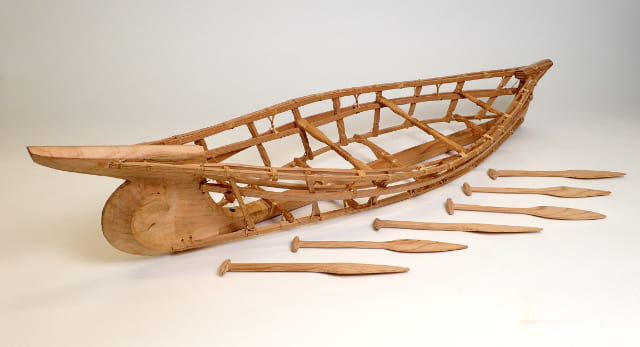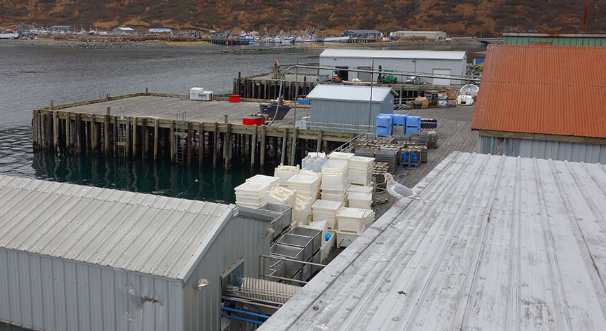
NaRiaciik (N); NaRaciik (S) – Boat Captain
Kugyasigtaangama naRaciyutaallianga. – When I was fishing (seining), I used to be a captain.
(Click sentence to hear Alutiiq words spoken.)
The Alutiiq word for boat captain, naRiaciikor naRaciik, comes from Russian. It includes a small capital R to indicate an “r“ sound, as in the English word run. While this sound is common in English and Russian words, it is absent in Alutiiq. Despite the recent origins of the word naRaciq, boat captains have a long history in Alutiiq communities.
In classical Alutiiq society, political leaders and successful hunters owned angyat: large, open skin boats. Used for long distance travel, trade, transport, and warfare, these boats were up to forty feet long and could carry twenty paddlers, as well as passengers and great quantities of supplies. Therefore, angyat were a sign of both affluence and leadership. They required support from community members to build and paddle, and they represented the ability to acquire wealth. Angyaq owners were the first boat captains.
Today’s boat captains own seiners and lead family members in commercial fishing. Often a father acts as the skipper and his sons, sons-in-law, nephews, or grandsons act as crew, although any combination of relatives may fish together. The strong family ties around captains and their boats are also expressed in boat names. Many are named for the captain’s daughter. The boat becomes her aalukaq, or namesake.
In addition to acting as family leaders, skippers are considered community leaders. Boat ownership is one of the most visible signs of wealth and status in Alutiiq villages, and with status comes the responsibility to help others. For example, many skippers donate time and resources during the busy fishing season to ferry people from Kodiak to Monk’s Lagoon for the annual pilgrimage to St. Herman’s grave.







